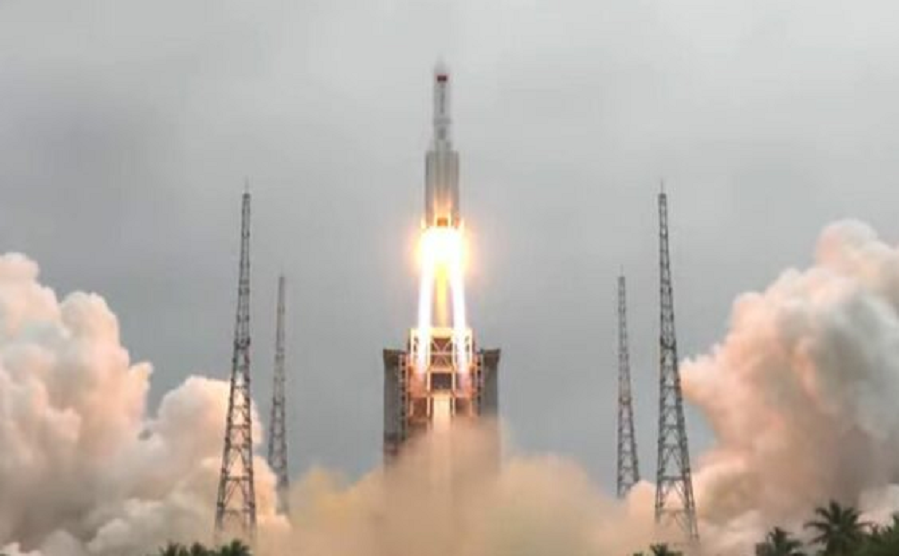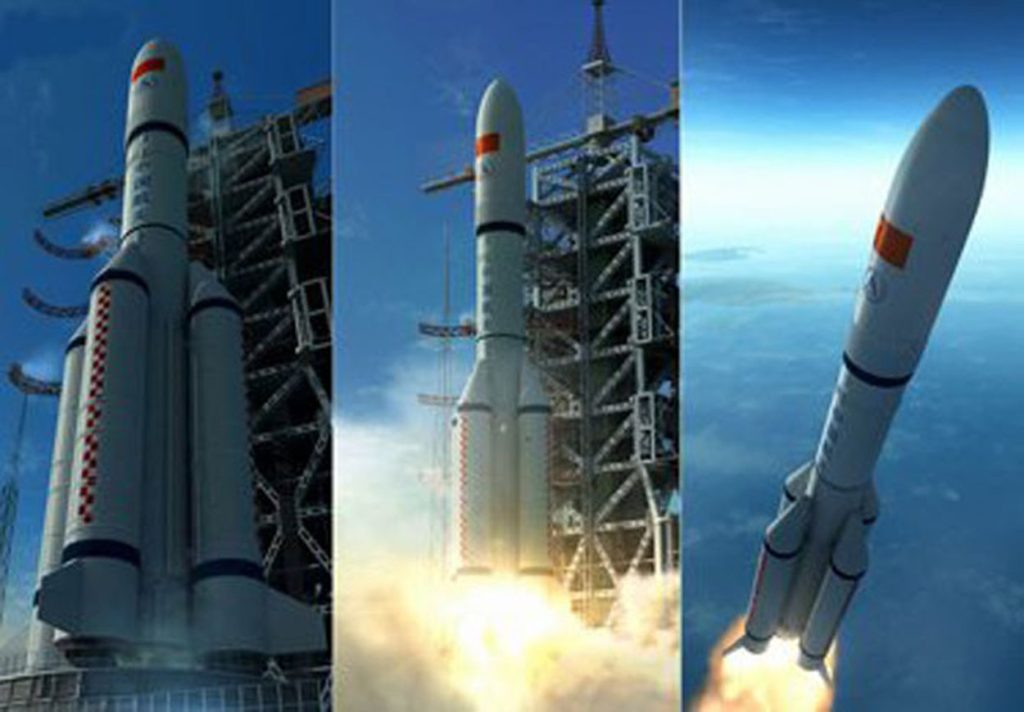
A massive rocket launched by China at the end of April made an out-of-control crash landing near the Maldives this weekend; while the U.S. and China have been swiping barbs at each other over that incident, China is preparing to launch 10 rockets in the coming days and months. With more uncontrolled returns to Earth possible, odds that one will hit a populated area and do damage or worse will increase, even if still small.
NASA Administrator Bill Nelson blamed China for a failure to “act responsibly and transparently in space.”
“Spacefaring nations must minimize the risks to people and property on Earth of re-entries of space objects and maximize transparency regarding those operations. It is clear that China is failing to meet responsible standards regarding their space debris,” Nelson said in a statement on May 9. “It is critical that China and all spacefaring nations and commercial entities act responsibly and transparently in space to ensure the safety, stability, security, and long-term sustainability of outer space activities.”
“China has been closely tracking its trajectory and issued statements on the re-entry situation in advance,” Foreign Ministry spokesperson Hua Chunying said. “There has been no report of harm on the ground. China also shares the results of re-entry predictions through international cooperation mechanisms.”
Chunying also said Beijing was treated unfairly and that American rocket debris is treated better by the American media. “American media used romantic rhetoric like ‘shooting stars lighting up the night sky,’” she said. “But when it comes to the Chinese side, it’s a completely different approach.”

“We are willing to work with other countries including the United States to strengthen cooperation in the use of outer space, but we also oppose double standards on this issue,” Chunying said.
Prior to its crash landing, a general location that wasn’t known until roughly an hour before impact, the Pentagon and the White House shared their thoughts.
U.S. Defense Secretary Lloyd Austin told reporters that the U.S. didn’t “have a plan to shoot the rocket down”, adding that they were hopeful that the rocket would “land in a place where it won’t harm anyone.”
“The United States is committed to addressing the risks of growing congestion due to space debris and growing activity in space and we want to work with the international community to promote leadership and responsible space behaviors,” White House press secretary Jen Psaki said at a news briefing last Wednesday.
Psaki said that if damage had occured from the Long March 5B debris, the White House would consult with U.S. Space Command and the Department of Defense for advice.
People on the Weatherboy facebook page have been vocal on the matter too. Most people think other countries, including the U.S., should apply pressure on China for better rocketry practices. Some believe the U.S. shouldn’t have a say on the matter too.
“Something should definitely be done!”, wrote Terry Vuono, adding that “This is absolutely ridiculous that this country is sending up rockets in the air that they can’t control and could land anywhere in the world!!!”
Mel Lapid thinks the Chinese activity is more sinister. “I don’t think this is incompetence on their part. It’s intentional.”
Carl Wilson doesn’t think the U.S. should insert itself into China’s space issues. “Why does the USA have to get in the middle of everything? We give $ here we give $ there. We have our own damn issues in the states to deal with.”
Linda Nilan wrote, “Something should be done. They need to be more responsible with their rocket program to make it safer for others around the world.”
However, concerns loom about China’s next series of rocket launches, including one that should lift-off any day.

On April 29, the infamous Long March 5B, a variant of China’s largest rocket, launched the 22.5-metric-ton Tianhe module for a space station China is building. Unable to participate in the International Space Station (ISS) due to restrictions imposed by the United States, China has embarked on building their own called “Tiangong.” Construction on the space station is due to be completed by sometime next year, with 10 more major launches planned this year to bring components of the station to space. With the ISS due to be retired after 2024, Tiangong may remain as the only working space station in Earth’s orbit.
Any day now, China will launch the Long March 7 version of their rocket, carrying the Tianzhou2 cargo craft to the Chinese space station. As with the April 29 launch, this rocket will launch from the Wenchang, China facility on Hainan Island near Sanya.
In June, China is due to launch the Long March 2F rocket with Chinese astronauts on-board to dock with their new space station. This will be China’s seventh launch with humans on-board and the first to travel to the new space station. This crewed rocket is due to lift-off from a launch facility in Jiuquan.
China says they will have an additional 8 launches beyond these two before 2022 to get their space station up and running. It is not known what, if any, technology China will employ to get their rockets to return in a controlled manner to a splash-down in the sea. But with an ambitious launch schedule and limited time available to improve upon their launch technology, China may once again threaten the world with many more out-of-control rockets in the months ahead.